
Honest, paywall-free news is rare. Please support our boldly independent journalism with a donation of any size.
In her essay “There Is No Hierarchy of Oppressions,” black lesbian feminist poet Audre Lorde wrote: “I have learned that oppression and the intolerance of difference come in all shapes and sizes and colors and sexualities; and that among those of us who share the goals of liberation and a workable future for our children, there can be no hierarchies of oppression.”
Around the world, women’s movements have long recognized the wisdom of that thought, which emphasizes the way social movements benefit by recognizing the intersections between different forms of oppression. In their letter “Women for Women in Ferguson,” the National Domestic Workers Alliance — a network of organizations representing nannies, home care workers, and housekeepers — stood in solidarity with the women of Ferguson, Missouri, who were affected by police brutality.
“As domestic workers, as women, we know that dignity is everyone’s issue and justice is everyone’s hope,” the letter reads. “We organize to create a world where every single one of us, domestic workers, black teens, immigrant children, aging grandparents — all of us — are treated with respect and dignity.”
In the face of growing corporate power, land grabs, economic injustice, and climate change, women’s movements offer a paradigm shift. They have redefined leadership and development models, connected the dots between issues and oppression, prioritized collective power and movement-building, and critically examined how issues of gender, race, caste, class, sexuality, and ability disproportionately exclude and marginalize.
“People of color within LGBTQ movements; girls of color in the fight against the school-to-prison pipeline; women within immigration movements; trans women within feminist movements; and people with disabilities fighting police abuse — all face vulnerabilities that reflect the intersections of racism, sexism, class oppression, transphobia, ableism, and more,” wrote Dr. Kimberlé Crenshaw, executive director of the African American Policy Forum, in a recent opinion piece. “Intersectionality has given many advocates a way to frame their circumstances and to fight for their visibility and inclusion.”
Women of color have unleashed powerful media campaigns and actions by connecting identity and its relationship with structural racism and institutional power. #DalitWomenFight, a powerful media initiative, links sexual violence faced by Dalit women with the deeply entrenched and institutionalized structure of caste in India. And in the United States, evocative actions taken by the #SayHerName campaign highlight how police brutality disproportionately affects black women.
Whether it is indigenous women in the Amazon fighting corporate polluters and climate change or undocumented Latina domestic workers advocating for worker rights and dignity in California, women’s groups and networks are making links between unbridled capitalism, violence, and the erosion of human rights and destruction of the Earth.
Here are just a few stories that show how they’ve done this.
Flipping the Script
To mark this year’s International Women’s Day, the women’s wing of La Via Campesina — an international movement uniting millions of peasants, small producers, landless farmers, and indigenous communities — is calling for action against capitalist violence all over the world.
“Capitalist violence is not only the violence that is directly inflicted upon women; it is also an integral part of a social context of exploitation and dispossession that is characterized by the historical oppression and violation of the basic rights of women peasants, farmers, and farmworkers, landless women, indigenous women, and black women,” notes the organization.
Dayamani Barla, a tribal journalist from Jharkhand, India, would agree. Barla led a powerful movement to stop the world’s largest steel company, ArcelorMittal, from displacing thousands of indigenous farming communities. Barla’s struggles are rooted in cultural survival as big dams, mining, and extractive industries have displaced, dispossessed, and impoverished millions of tribal people across India. Barla firmly believes that territorial sovereignty is key for achieving food sovereignty. “Globalization, in fact, has given rise to a kind of fascism,” she notes.
Barla has flipped the script on traditional models of “development” by defining it from an indigenous worldview. “We are not anti-development,” she said. “We want development, but not at our cost. We want development of our identity and our history. We want that every person should get equal education and healthy life. We want polluted rivers to be pollution free. We want wastelands to be turned green. We want that everyone should get pure air, water, and food. This is our model of development.”
In 2012, Barla was jailed for leading a protest that created a roadblock and since her release has faced ongoing legal hurdles and threats for her fight against land grabs. These threats are emblematic of increasing criminalization and repression facing women human-rights defenders today.
In 2013, pastoral Maasai women braved violence and threats to stop a land grab east of the famed Serengeti National Park in Loliondo. These land struggles have catalyzed women’s leadership in the traditionally male-dominated Maasai community and illuminated the vital role women play in protecting Maasai culture and identity.
“We are building unity among indigenous women,” said Siketo, an elder Maasai woman, in a 2014 interview in Tanzania. “Without unity, we cannot fight and we need to learn from struggles of other communities.” The Pastoral Women’s Council, an organization led by Maasai women, is building the leadership of women in the Loliondo land struggles and advocating for the education and economic empowerment of girls and women in their community.
Women’s movements are also bringing to the forefront that which is alarmingly invisible: women’s paid and unpaid labor as caregivers, farmers, domestic workers, natural resource managers, and human rights defenders.
Mujeres Unidas y Activas (MUA), a grassroots organization of Latina immigrant women in the San Francisco Bay Area, has a dual mission of promoting personal transformation and building community power for social and economic justice. In 2013, MUA members played a key role in the passage of the historic California Domestic Worker Bill of Rights. Immigrant women of color are a large portion of domestic workers, who risk exploitation, racism, and poor working conditions. Katie Joaquin, campaign director of the California Domestic Workers Coalition, views this as an international struggle that is critical for the leadership of women.
MUA’s approach epitomizes how an organization can connect the dots between issues and movements — from winning justice for domestic workers to fighting for immigration reform and ending deportations to interacting with global grassroots social justice movements.
Audre Lorde concluded her essay by expressing a sentiment that would resonate with MUA members: “I cannot afford to choose between the fronts upon which I must battle these forces of discrimination, wherever they appear to destroy me. And when they appear to destroy me, it will not be long before they appear to destroy you.”
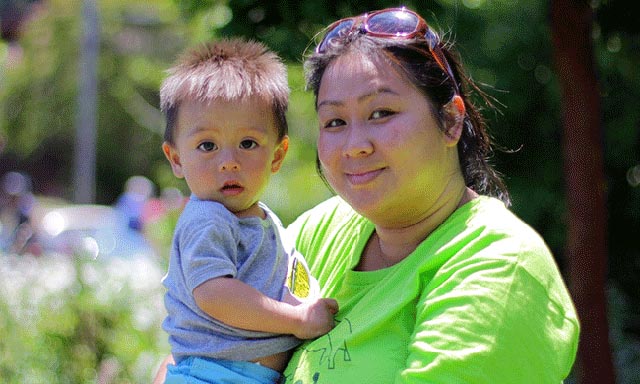
Sandy Saeturn is a community organizer at the Asian Pacific Environmental Network, who arrived in the United States when she was three months old. She was born in a refugee camp in Thailand after her family fled war and violence in Laos. “I grew up in the North Richmond housing projects. I could see the Chevron refinery from my elementary school playground,” she says. There are nearly 350 toxic sites in Richmond, California, making this city a frontline battleground for environmental and racial justice. “Over time, my uncle, aunts, grandparents have died from respiratory issues and cancer. People in their 30s and 40s were passing away from cancer, and no one was talking about this in my community. When I was 14, members of APEN shared with us about the environmental and health impact of chemical companies in Richmond, and I realized that this was unjust.” Sandy has now worked with APEN for more than 15 years, raising awareness on environmental justice issues in her Laotian community and working as a youth advocate.
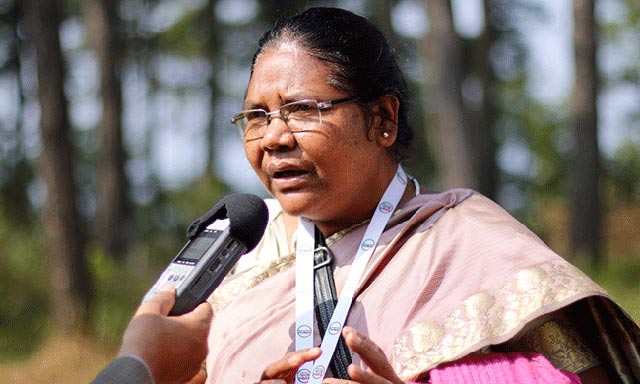
Tribal journalist and movement leader, Dayamani Barla, is on the frontline of land struggles in Jharkhand, India. Dayamani believes that displacement of indigenous communities in Jharkhand is akin to cultural annihilation and has advocated for sustainable development models that integrate indigenous worldviews and knowledge systems. “Our perspective is to make livelihoods as the basis of indigenous people’s culture. This is to sculpt a new model of development, which has a scientific thinking like the indigenous lifestyle and the technology should work in harmony and cooperation with nature. The thinking should not be just to take away from nature,” she notes.
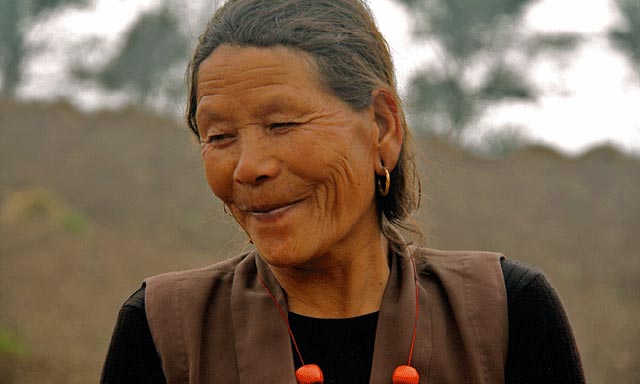
Women and girls are much more vulnerable to disasters than men are. The aftermath of Nepal’s earthquake last year was devastating for women in many ways. In the face of disproportionate impact, trailblazing women’s rights advocate and peace activist, Rita Thapa, underscores the crucial leadership of Nepali women in earthquake recovery and rebuilding efforts. “Women hold their communities together, and it was no different after the earthquake in Nepal. The remarkable thing to learn was that long-term recovery work of lives and the planet Earth can be done with little display of money or power. The strengths women carry—feeding the young, old, sick; engaging in pending field work or housework, caring for the sick, and picking up the rubble (literally) is all it takes to slowly allow the affected to recover and heal. Everyone can learn from this—caring for one another and the planet Earth is not rocket science. A leadership that runs deep with compassion, care, and respect, and one that can build back confidence and hope is all it takes,” she shared.
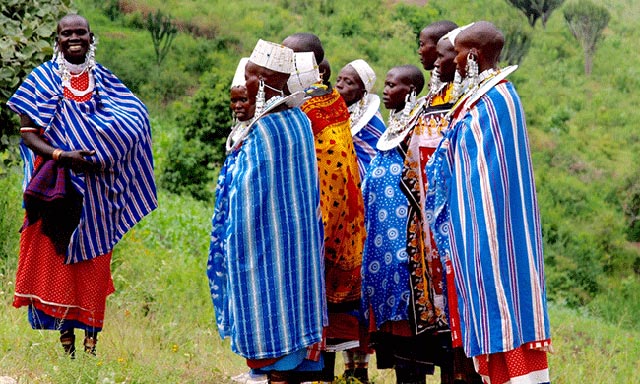
Maasai women have been on the frontlines of land struggles in Loliondo, Tanzania. Maasai pride and identity is deeply interwoven with a pastoral life and worldview. “Land and cattle are life,” shared one Maasai woman in Loliondo in 2014. Standing shoulder to shoulder with men in their communities, Maasai women have bravely resisted land evictions stemming from the Tanzanian government’s plans to create a wildlife corridor; women also shared their concern over pastoral land that was acquired by private and luxury hunting and tourism companies. “Money has created a lot of problems in this world. Land can be bought and sold like cattle,” sang Maasai women in a song about land struggles.
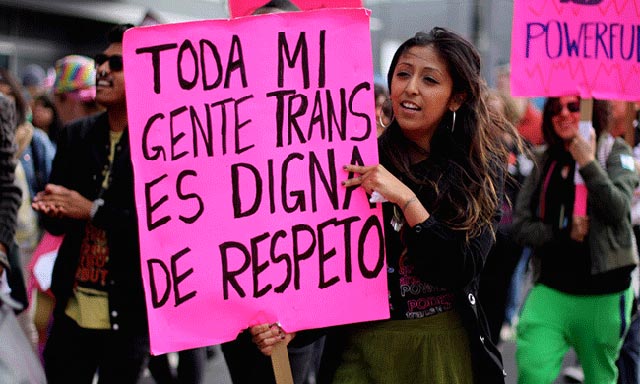
Lidia Salazar, of Mexican descent, works with queer and trans survivors of violence through her work with Community United Against Violence, one of the oldest LGBT anti-violence groups in the San Francisco Bay Area. “As women of color, it’s hard to have our voices heard in the LGBT movement because a lot of marginalized people’s issues are not reflected in the [movement]. We celebrated a victory for marriage equality but that has nothing to do with real issues that queer and trans people of color face, which is lack of housing and disproportionate violence our communities face that is underreported. We can’t rely on the police to take care of our communities. It’s up to us to figure out how to keep our communities safe and how to heal through the violence we experience because of society’s denial of racism, homophobia, and transphobia,” she said.
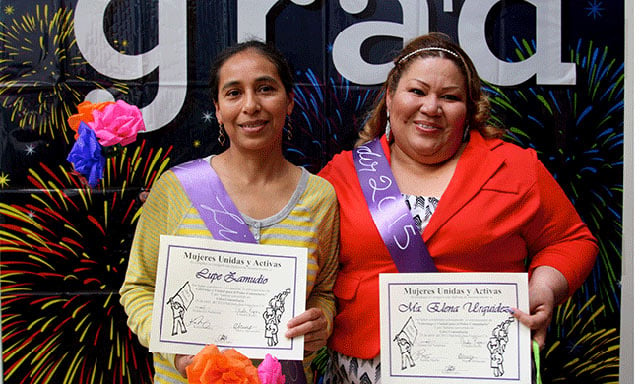
Mujeres Unidas y Activas (MUA) builds the leadership of immigrant Latina women through personal transformation workshops and political awakening and rights-based trainings. MUA believes that immigrant women are leaders from the moment they come through the organization’s doors. “Economic justice is important to have freedom and dignity in life. Women need to support their basic needs and also have self-determination. We now have women stepping into leadership roles [after the trainings]. That is tied to their process of healing and developing personal and collective strength,” said Katie Joaquin, Campaign Director of the California Domestic Workers Coalition.
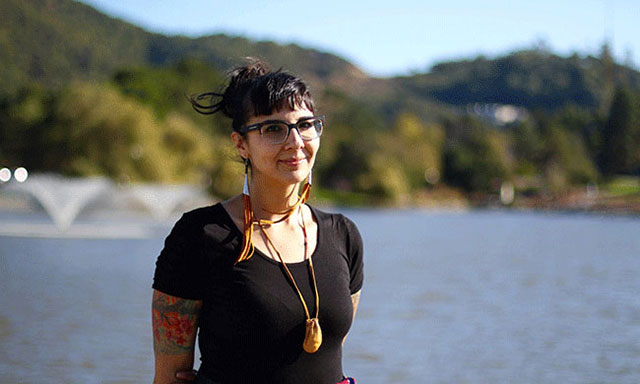
Eriel Deranger belongs to the Athabasca Chipewyan First Nation of Alberta, Canada, and has emerged as a powerful voice against tar sands, the world’s largest industrial project. Deranger is a tireless advocate for the rights of the First Peoples of Canada, raising awareness of the impact of tar sands on the culture, health, and sacred lands of indigenous communities. “Colonization came with the imposition of patriarchy. The real power of our communities came from our women as we were matriarchal societies. Our women today are reclaiming our roles as leaders of our community, as part of this resurgence of our people, not just in the climate movement but in all of the different movements to reclaim our indigeneity,” she said.
A terrifying moment. We appeal for your support.
In the last weeks, we have witnessed an authoritarian assault on communities in Minnesota and across the nation.
The need for truthful, grassroots reporting is urgent at this cataclysmic historical moment. Yet, Trump-aligned billionaires and other allies have taken over many legacy media outlets — the culmination of a decades-long campaign to place control of the narrative into the hands of the political right.
We refuse to let Trump’s blatant propaganda machine go unchecked. Untethered to corporate ownership or advertisers, Truthout remains fearless in our reporting and our determination to use journalism as a tool for justice.
But we need your help just to fund our basic expenses. Over 80 percent of Truthout’s funding comes from small individual donations from our community of readers, and over a third of our total budget is supported by recurring monthly donors.
Truthout has launched a fundraiser, and we have a goal to add 231 new monthly donors in the next 48 hours. Whether you can make a small monthly donation or a larger one-time gift, Truthout only works with your support.